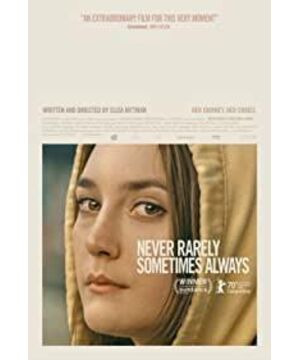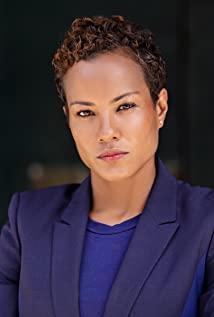Does Adolescent Abortion Exist? Of course, and not a few. Abortion is actually a social issue, and in domestic youth films, teenage abortion has become synonymous with "pain literature" without a problem. It's not abortion that makes bad movies, but the presentation of abortion by the creators of the bad movies.
In contrast to this film, the director successfully presented the melancholy youth of an abortion girl. First of all, the director's narration from a female perspective did not portray the heroine as a stray girl. Secondly, the film successfully showed the mentality and crux of adolescence and the inadvertent Exuding feminine care.
1. The transformation of the gaze object
In fact, many successful female films in the history of film were made by male directors. The most representative one is "The End of the Road", in which Ridley Scott uses the masculine image of Brad Pitt to talk about the film system The male gaze transforms into the female gaze.
The male gaze is women's pandering to men's visual enjoyment, which constitutes a power relationship, and the power relationship constitutes the oppression of women. This oppression is presented in film and television as women become objects to be watched to please male viewers. "The Endless Flower" has formed an absolute breakthrough in this theory, and Ridley Scott has completed the transformation of the gaze. And I also want to mention the gaze theory in this film because the female body shown in this film does not integrate serious male aesthetics, but instead shows a small belly, shoulder strap scars, etc. that are not perfect from a male perspective In part, it bursts the flashy bubble and confronts the real female body.
The female image in traditional movies accepts the scrutiny of men and carries the desire of men, and women also internalize the pleasure of men to unify themselves with the perspective of men. This film breaks through it and creates a unique feminine charm.
But what the film shows is more of a female plight. The two girls have become weak and are in an invisible cage. In addition to being minors and unable to bear social pressure, they are also subjected to unfair conditions because they are women.
From the very beginning of the movie, the boy at the next table's sexual suggestion to the heroine, the perverted dew bird on the subway, and the two heroines were kissed by the perverted male boss when they checked out from get off work. This kind of obscenity lurks in every corner of the movie. As if to imply that this kind of sexual harassment is everywhere.
The heroine accidentally leaked a secret when she was asked the "never, rarely, sometimes, always" question, and her suppressed emotions burst out when she was asked if she was forced by violence. The screenwriter did a smart job in this regard. He didn't tell the whole story, but showed the tip of the iceberg and let the audience imagine the whole picture of the iceberg.
This question-asked segment is only a small part of the movie's length, but it is used as the title of the movie. This move allows the group to be expanded from two girls to every woman who has been hurt or has received unfair treatment, which has virtually added social issues about the female group to the film. The most important point to categorize as women's films.
The boy whom the second girl met on the way to New York made intimacy with the second girl after they asked for help, and his kissing of the second girl virtually exchanged for helping them. It has become a bond of rights, and it is also a kind of oppression of the strong by the weak.
2. Melancholy youth
What the movie shows more is not social issues, but melancholy youth.
Adolescence is the link between home and society. At the age of seventeen, I went out for a long journey, leaving a small and familiar area to an unknown metropolis. The two girls were full of sad faces, carrying secrets that they dared not tell their parents.
They are going to have an abortion. The concept of patriarchal society makes it impossible to talk about abortion. The heroine doesn't know what to do, so she misses the best time to have an abortion. She doesn't know that in the eyes of adults, the biggest thing in the eyes of a teenager is nothing but a a piece of cake. There are financial troubles and fear and confusion about the unknown in the process of facing it alone, and this psychological pressure makes the whole film exude a gloomy atmosphere. And after the surgery, after the problem was solved, the heroine showed a long-lost smile, the melancholy atmosphere was swept away, and even the sun became brighter.
In the process of growing up, every rebirth is painful. In "Dog Thirteen", the girl completed a transformation in the painful entanglement and became a "sensible adult"; in Zweig's short story "The Burning Secret", the boy discovered The adult secret learned to disguise after being blamed for no reason, and he also grew up and came to terms with the adult.
There are also people who stayed in the predicament of growing up and did not come out, such as Xiao Si in "Guling Street Teenage Murder Incident", his youth will always stay on that night. Or the two teenagers in "Youth of You" who thought they could save the world. Or run away like "Four Hundred Strikes", run out of the trapped home, escape from the collapsed world, and run to the border of the sea at the end of the land.
Most of the time we have nowhere to go but to endure the suffering and meet the transformation, which is an option that cannot be chosen. This is the meaning of youth and the theme of youth films.
View more about Never Rarely Sometimes Always reviews











